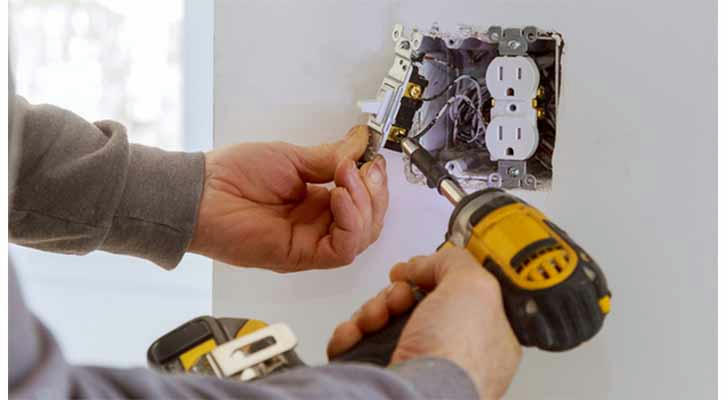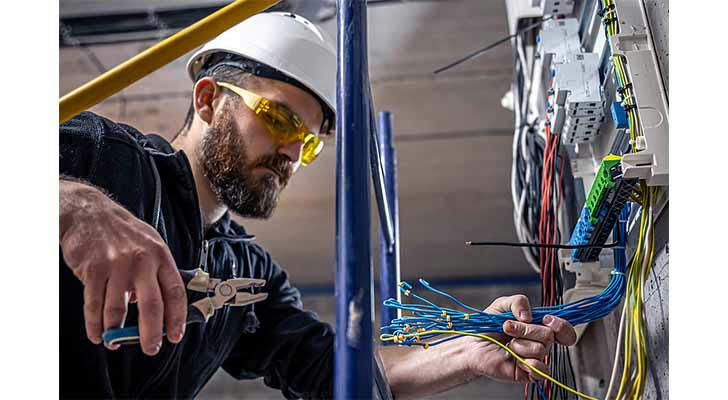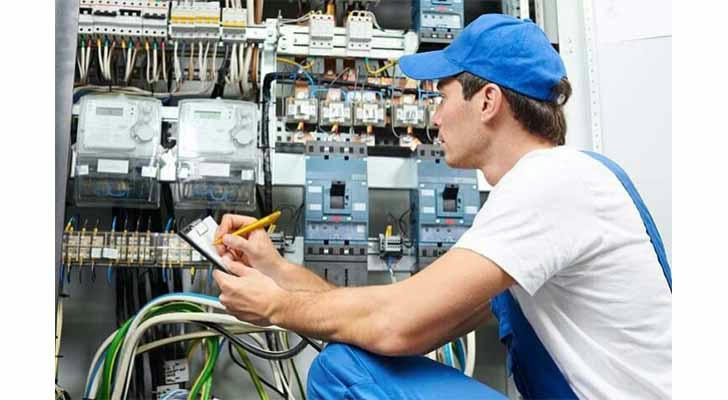Electricians in the U.S.: A Bright Career in a Powerful Industry
Electricians are vital professionals in the modern world, ensuring that homes, businesses, and industries operate smoothly and safely. They are responsible for installing, maintaining, and repairing electrical systems, which power everything from household appliances to large-scale industrial machinery. With the increasing reliance on renewable energy and smart technology, the demand for skilled electricians in the U.S. continues to rise, making it an excellent career choice for those interested in technical work and problem-solving.

Role and Responsibilities of Electricians
Electricians perform a wide variety of tasks, depending on their specialization. These tasks typically fall into the following categories:
Installation: Electricians install wiring, outlets, circuit breakers, and electrical panels in buildings under construction or renovation. This requires interpreting blueprints and following strict safety codes.
Maintenance and Repair: Routine inspections ensure that electrical systems remain functional and safe. Electricians troubleshoot and fix issues such as faulty wiring, overloaded circuits, or malfunctioning equipment.
Upgrades and Modifications: As technology evolves, electricians help upgrade systems to meet new standards, such as installing energy-efficient lighting, smart home systems, or renewable energy sources like solar panels.
Specialized Work: Many electricians focus on specific fields, such as industrial electrical systems, which involve working with large machinery, or telecommunications, which requires expertise in wiring data and phone networks.
Emergency Services: Electricians are often called upon to address urgent issues, such as restoring power after outages or repairing systems damaged by storms or accidents.
Essential Skills and Qualifications
Being an electrician requires a mix of technical knowledge, manual dexterity, and the ability to work under pressure. Key skills include:
Technical Knowledge: A thorough understanding of electrical systems, wiring, and safety codes is essential. Electricians must also know how to use tools like multimeters, wire strippers, and conduit benders.
Problem-Solving Abilities: Diagnosing and fixing electrical issues requires logical thinking and quick decision-making.
Attention to Detail: Precision is crucial when working with electricity, as small mistakes can lead to dangerous situations.
Physical Stamina and Dexterity: Electricians often work in tight spaces, on ladders, or outdoors in various weather conditions. The ability to handle tools accurately and safely is critical.
Communication Skills: Electricians must collaborate with clients, contractors, and team members to understand project requirements and deliver effective solutions.

Education and Training
Becoming an electrician involves both classroom learning and hands-on experience:
Education: While some electricians start their careers with only a high school diploma, many pursue technical programs at trade schools or community colleges. Courses typically cover topics such as electrical theory, blueprint reading, safety protocols, and local electrical codes.
Apprenticeship: Most electricians complete a four- to five-year apprenticeship, combining paid on-the-job training with classroom instruction. Apprenticeships are offered through unions, trade associations, and individual employers.
Licensing and Certification: In most states, electricians must obtain a license to work independently. This typically involves passing a written exam on electrical codes and practices. Additional certifications, such as those for solar panel installation or industrial systems, can enhance career prospects.
Specializations
Electricians can choose to specialize in various areas based on their interests and career goals. Common specializations include:
Residential Electricians: Focused on homes, these electricians handle tasks like wiring, installing light fixtures, and troubleshooting power issues.
Commercial Electricians: Work on larger projects such as office buildings, shopping centers, and schools. Their work often involves more complex systems than those in residential settings.
Industrial Electricians: Specialize in manufacturing plants and industrial facilities, working on heavy machinery, control systems, and high-voltage networks.
Telecommunications Electricians: Install and maintain systems for internet, phone, and cable services, ensuring connectivity and reliable data transmission.
Renewable Energy Specialists: With the rise of solar and wind energy, electricians trained in renewable technologies are increasingly sought after.
Job Outlook and Salary
The demand for electricians in the U.S. remains strong, driven by the growth of the construction industry, the push for renewable energy, and the modernization of outdated electrical systems. The U.S. Bureau of Labor Statistics (BLS) projects steady job growth for electricians over the next decade.
Salary: The median annual wage for electricians is approximately $60,000, with experienced professionals and those in specialized fields earning upwards of $90,000. Wages vary based on location, experience, and certification. Unionized electricians often earn higher salaries and receive comprehensive benefits.

Challenges and Opportunities in the Industry
Electricians enjoy job stability and opportunities for advancement, but the career also comes with challenges:
Safety Risks: Working with electricity carries inherent dangers, including shocks, burns, and falls. Strict adherence to safety protocols and the use of protective gear are essential.
Physical Demands: The job can be physically taxing, requiring long hours, heavy lifting, and work in uncomfortable positions.
Evolving Technology: Staying updated with new technologies and industry standards requires continuous learning and adaptation.
On the other hand, the industry offers many opportunities:
Renewable Energy: The shift towards sustainable energy sources has created demand for electricians skilled in solar and wind energy systems.
Smart Technology: The popularity of smart homes and buildings has increased the need for electricians who can install and maintain advanced automation systems.
Entrepreneurship: Experienced electricians can start their own businesses, providing services to residential or commercial clients and achieving financial independence.
Emerging Trends in the Electrical Industry
The electrical industry is evolving rapidly, with several trends shaping its future:
Green Energy Solutions: Electricians are increasingly involved in installing energy-efficient systems, such as LED lighting and smart thermostats, as well as renewable energy infrastructure.
Electric Vehicles (EVs): The rise of EVs has created a demand for electricians skilled in installing and maintaining charging stations.
Energy Storage: With advancements in battery technology, electricians are working on integrating energy storage systems into homes and businesses.
Automation and Smart Systems: Electricians are at the forefront of implementing smart technologies that enhance energy efficiency and convenience, from voice-activated lighting to security systems.
Conclusion
Electricians are indispensable in ensuring the safety, efficiency, and modernization of electrical systems in a rapidly evolving world. For individuals who enjoy technical challenges, hands-on work, and problem-solving, this profession offers a dynamic and rewarding career.
With strong demand, opportunities for specialization, and the chance to work on cutting-edge technologies, electricians play a critical role in powering the future. By staying informed about industry trends and pursuing advanced training, electricians can achieve long-term success and make a meaningful impact in this essential field.
